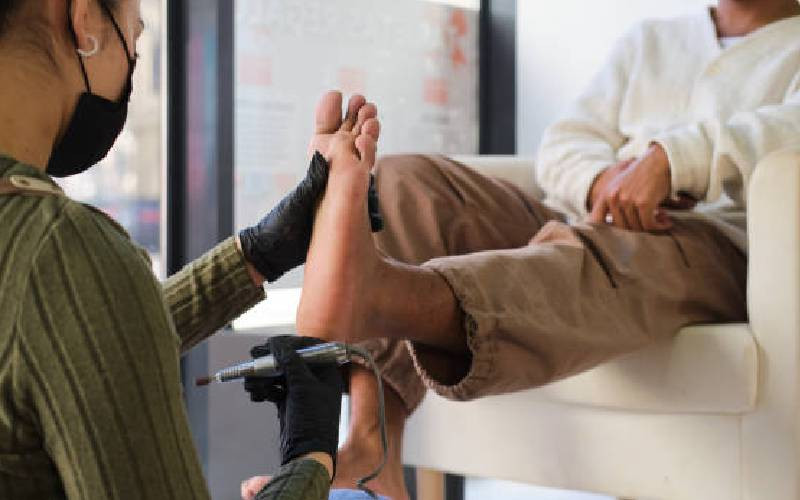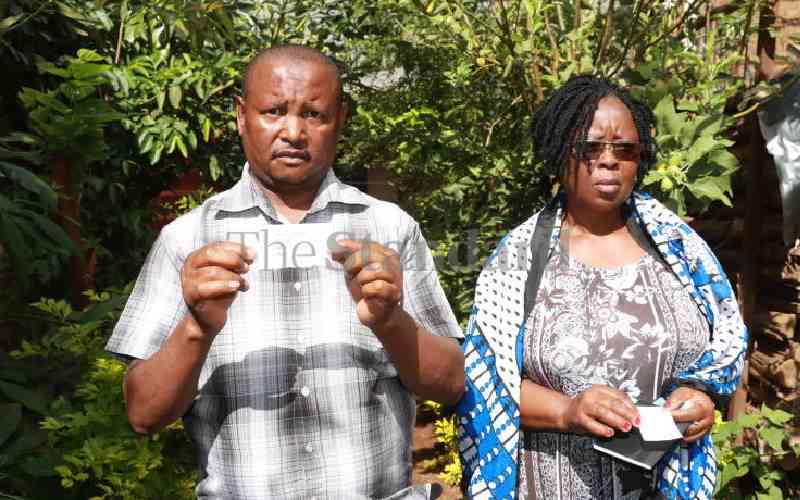
I was in that rare space called “self-care,” when we retreat from pressures of the world to be by ourselves. In my estimation, I had enough time for grooming, which is rare, followed by a drink in solitude, which is even rarer.
And there was a particular treat I was looking forward to, a sacrilege of sorts, if you think about it, for a villager with peasant roots: pedicure. We grew up using feet submerged in the earth, battling with soil to produce food, not beautified for display.
But my self-care was not to be. The youngest man in our house had arrived with a crepe bandage on the wrist and a teacher’s note saying “a little unwell,” following an accident while playing.
The wails and grunts at every slight move of the wrist suggested this was more than a minor injury. As the young man explained they were having inter-house competitions, bringing together boys from other classes in a game of football.
There was a goal-mouth scramble. He was on the ground when someone stepped on his wrist. He felt the wrist snap, followed by an excruciating pain. “It was a mistake,” he clarified. “He didn’t do it on purpose.” Did he know the name of the boy who stepped on him, I asked. He shook his head. There were so many boys hovering around the goal area, he went on, “Everybody was trying to score…”
After a long night, I got the young man to hospital the following day. An x-ray confirmed a fracture. There was more. This was no ordinary fracture; it’d require reconstructive surgery. A teacher’s prognosis of the lad as “a little unwell” had proved fatally flawed.
Through the hours that followed, navigating through hospital bureaucracy for admission, confirming NHIF subscriptions, reading up on the planned procedure and verifying the credentials of the medics lined up—because you don’t take anything at face value in Kenya — I was a pack of nerves.
It was the young man’s relaxed mindset, totally free of rancour, that steadied me. An accident had happened, there was no malice on the lad who stepped on him, and whose identity remained unknown. If I was to vent at anyone, who could it be? The teacher who misreads the gravity of the injury, who fails to communicate early enough, and writes bad English?
I listened intently to the young man. “I am still thinking how I broke my hand,” he said quietly, for the umpteenth time. “I don’t understand how it happened,” he said helplessly.
When the mother suggested it was time he quit football, the lad produced a very lucid response. “Football is not the problem,” he said with certainty. “When defenders take their position and strikers take theirs, there will be no crowding at the goal.”
For the record, the sport and other games at the school are managed by external professionals at decent costs to parents, but I suppose this doesn’t include quality supervision of their wards.
In this degenerate State we call Kenya, money is the root of all evil. After nearly 12 straight hours of waiting, readying for theatre, I asked for the doctor. I needed his reassurance that he was making a professional call. He took us through the procedure, for the second or third time.
The young man was wheeled into theatre at 9.30pm that night, but he would have the last word. “Wait,” he told the surgeon, as it was narrated afterwards. He posed some questions of his own. Once satisfied with the responses, he allowed the surgeon to proceed.
“If all goes well, I will rate this hospital the best in the world,” the young man declared. This is our brave new world. Everything went well, so I’m waiting for him to declare the facility, on a platform of his own, the best. Meanwhile, my pedicure waits.
Stay informed. Subscribe to our newsletter
 The Standard Group Plc is a
multi-media organization with investments in media platforms spanning newspaper
print operations, television, radio broadcasting, digital and online services. The
Standard Group is recognized as a leading multi-media house in Kenya with a key
influence in matters of national and international interest.
The Standard Group Plc is a
multi-media organization with investments in media platforms spanning newspaper
print operations, television, radio broadcasting, digital and online services. The
Standard Group is recognized as a leading multi-media house in Kenya with a key
influence in matters of national and international interest.
 The Standard Group Plc is a
multi-media organization with investments in media platforms spanning newspaper
print operations, television, radio broadcasting, digital and online services. The
Standard Group is recognized as a leading multi-media house in Kenya with a key
influence in matters of national and international interest.
The Standard Group Plc is a
multi-media organization with investments in media platforms spanning newspaper
print operations, television, radio broadcasting, digital and online services. The
Standard Group is recognized as a leading multi-media house in Kenya with a key
influence in matters of national and international interest.






